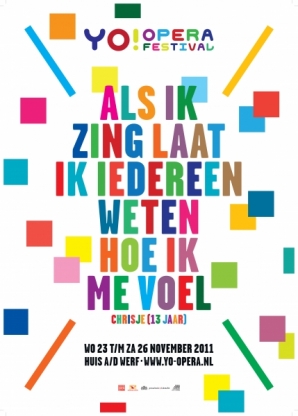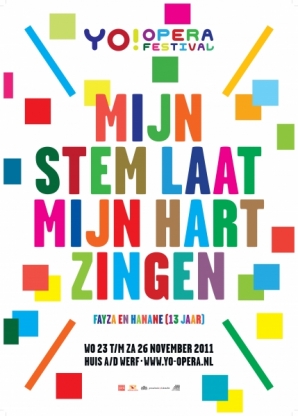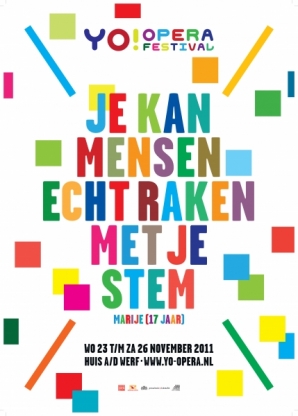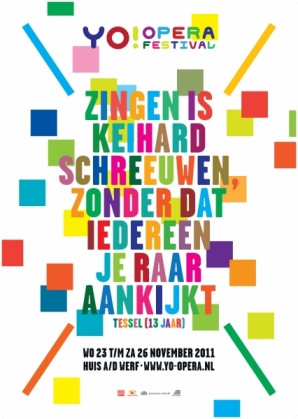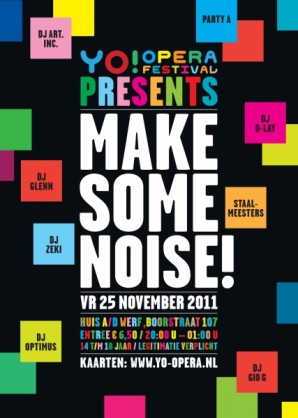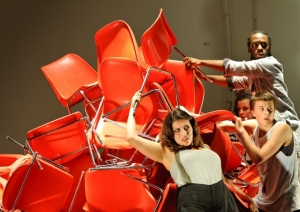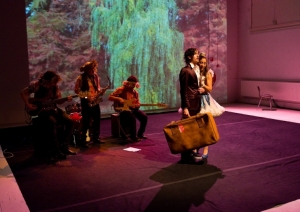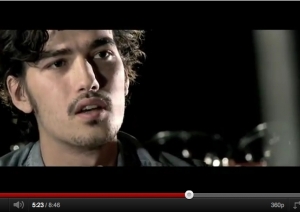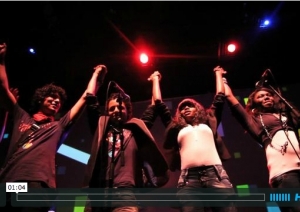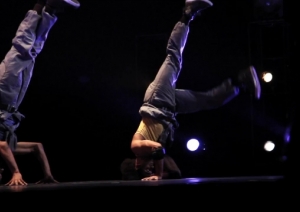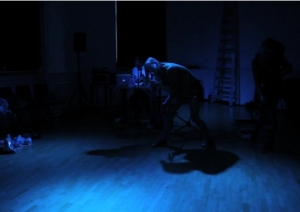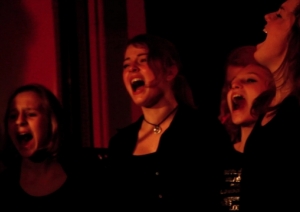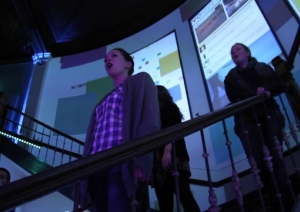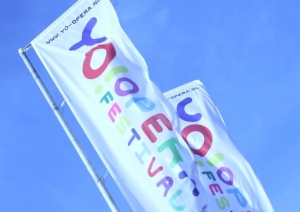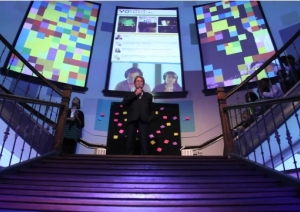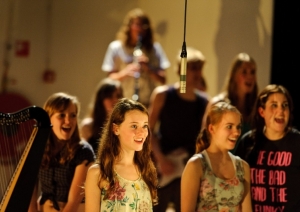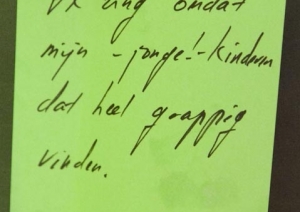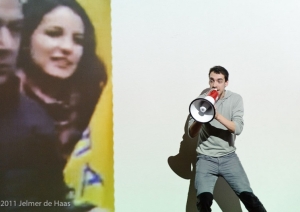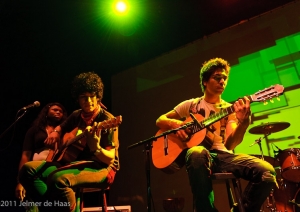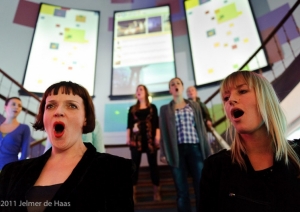Yo! Opera Festival 2011
The sixth and final Yo! Opera Festival took place at Huis a/d Werf from 23 to 26 November 2011. One more time, Yo! Opera could let its visitors see, hear and feel what that time-honoured genre of opera could mean to modern young audiences. In 2011, Yo! Opera was all about connecting art and the audience with the help of music, theatre, words and movement.
With this sixth festival, Yo! Opera passed its message on to a new generation of opera makers. They showed their power, flexibility and open mind towards art – song, music, text, dance, image – and towards a young audience through several, mostly very powerful, short operas. In each studio, in each hall and in any place you wouldn't expect it, you would find yourself in the middle of an exciting, topical performance on appealing themes, using a great diversity in musical styles. During the four days of the festival, Yo! Opera showed all opera has to offer.
2011 of all years was a year in which one revolution took place after another. Youth played a crucial role in these revolutions, by claiming its rights to a brighter future. That year, Yo! Opera chose to focus on current themes. A great diversity typified the series of operas presented, which were loosely connected by the themes 'young heroes' and 'revolution'. They were dazzling, passionate and current performances in which the human voice played the main part. The ominous yelling of people in protest in Sound of Protest, the human breath in Heroine – a Female Lament, the hesitating voices of pupils of the International Intermediate Class, the deep baritone sound of Jan Polak, who in STURM sings of a strange dream about a school party.
The human voice and the necessity to use it could be felt and heard everywhere during the festival. Its diversity made clear that singing is of great significance, and that letting your voice be heard is important. It can be a way to protest (Talking 'bout a Revolution), to express utter loneliness (A Chair on Two Legs), to speak on behalf of those who have no voice (Veldwerk [Fieldwork]), a virtuoso instrument which can make you famous (King of the Universe), or a way to communicate with the rest of the world (Trekhaak Gezocht! [Wanted: Towing Hook] and Mezrab).
After two great parties, the presentation of the very last Yo! Opera project De Klaptafel [The Folding Table] ánd - last but not least – the presentation of the Culture Prize by the municipality of Utrecht to artistic director Anthony Heidweiller, Yo! Opera ceased to exist, but it certainly left its mark.
With this sixth festival, Yo! Opera passed its message on to a new generation of opera makers. They showed their power, flexibility and open mind towards art – song, music, text, dance, image – and towards a young audience through several, mostly very powerful, short operas. In each studio, in each hall and in any place you wouldn't expect it, you would find yourself in the middle of an exciting, topical performance on appealing themes, using a great diversity in musical styles. During the four days of the festival, Yo! Opera showed all opera has to offer.
2011 of all years was a year in which one revolution took place after another. Youth played a crucial role in these revolutions, by claiming its rights to a brighter future. That year, Yo! Opera chose to focus on current themes. A great diversity typified the series of operas presented, which were loosely connected by the themes 'young heroes' and 'revolution'. They were dazzling, passionate and current performances in which the human voice played the main part. The ominous yelling of people in protest in Sound of Protest, the human breath in Heroine – a Female Lament, the hesitating voices of pupils of the International Intermediate Class, the deep baritone sound of Jan Polak, who in STURM sings of a strange dream about a school party.
The human voice and the necessity to use it could be felt and heard everywhere during the festival. Its diversity made clear that singing is of great significance, and that letting your voice be heard is important. It can be a way to protest (Talking 'bout a Revolution), to express utter loneliness (A Chair on Two Legs), to speak on behalf of those who have no voice (Veldwerk [Fieldwork]), a virtuoso instrument which can make you famous (King of the Universe), or a way to communicate with the rest of the world (Trekhaak Gezocht! [Wanted: Towing Hook] and Mezrab).
After two great parties, the presentation of the very last Yo! Opera project De Klaptafel [The Folding Table] ánd - last but not least – the presentation of the Culture Prize by the municipality of Utrecht to artistic director Anthony Heidweiller, Yo! Opera ceased to exist, but it certainly left its mark.















